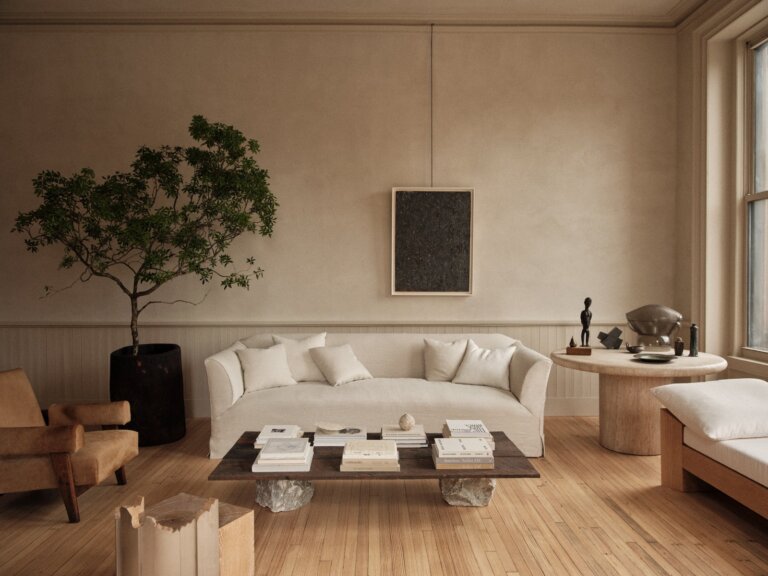Yes, education impacts salary for interior designers. Higher education often leads to better pay.
Interior design is a growing field with many opportunities. It’s creative and competitive. Many wonder if more education means higher pay in this industry. Does a degree really make a difference? Understanding the link between education and salary can guide career choices.
Let’s explore how education affects earnings for interior designers. Is it worth the investment? This blog will look at different education levels and their impact on salary. We’ll see if more schooling leads to better paychecks. Stay with us to uncover the facts.
Introduction To Interior Design Careers
Interior designers create beautiful spaces. They work on homes, offices, and other buildings. Their job is to make spaces functional and attractive. Design skills are very important. Knowledge of materials, colors, and lighting is also key.
An interior designer plans the layout of rooms. They select furniture and decorations. They also coordinate with builders and architects. Good communication is vital. They need to understand clients’ needs and preferences. Creativity and attention to detail are essential for success in this role.
Becoming an interior designer can follow different paths. Some start with a degree in interior design. Others may have degrees in related fields. Many designers take courses to update their skills. Internships and apprenticeships provide valuable experience. Professional certification can enhance career prospects. Networking with other designers helps in finding new opportunities.

Credit: thimpress.com
Education Pathways In Interior Design
Many interior designers choose to earn a degree. A degree can offer in-depth knowledge. It can also provide hands-on experience. Associate degrees take two years. Bachelor degrees take four years. Both degrees cover design principles. They also teach computer-aided design (CAD). Some programs include internships. These can help students gain real-world experience. Having a degree can make a designer more competitive in the job market.
Some places require designers to have a license. This often means passing an exam. Certification can show expertise. It can also build trust with clients. Certification programs may focus on safety standards. They may also cover building codes. Having a license or certification can boost a designer’s salary. It shows dedication and knowledge in the field.
Impact Of Education On Salary
Interior designers with a bachelor’s degree usually earn more. Those with a master’s degree can expect even higher pay. People with only a high school diploma often earn the least. The following table shows the average salaries:
| Education Level | Average Salary |
|---|---|
| High School Diploma | $35,000 |
| Bachelor’s Degree | $50,000 |
| Master’s Degree | $65,000 |
Higher education can lead to better job opportunities. Over time, those with more education may advance faster in their careers. A degree can open doors to senior positions and higher pay. Education helps in building skills and expertise needed for complex projects.
Skills And Experience Vs. Formal Education
Practical experience can be very valuable for interior designers. Working on real projects helps build strong skills. Clients trust designers with hands-on experience more. This experience can sometimes be more important than a degree.
Real-world tasks teach lessons classrooms cannot. Meeting clients, solving problems, and making decisions are all part of this. Gaining this experience boosts confidence too.
Skills can be developed outside the classroom. Online courses, workshops, and self-study help. Many resources are available for learning new techniques.
Joining professional groups can be beneficial. Networking with others in the field provides valuable insights. Sharing knowledge helps everyone grow.
Case Studies And Real-world Examples
Designers with formal education often earn higher salaries. They gain skills and knowledge in design principles. Many top firms seek these designers. Formal education helps in building a strong portfolio. It also provides networking opportunities. Graduates have access to resources and mentors. These benefits can lead to better job offers and higher pay.
Some designers succeed without formal education. They rely on natural talent and hard work. Experience and self-learning play a big role. Many self-taught designers have built successful careers. They use online courses and workshops. Networking and real-world experience help them grow. These designers often have unique styles and creative solutions. Success is possible through dedication and passion.
Industry Demand And Salary Trends
The demand for interior designers is high. Many businesses need skilled designers. Homes and offices need fresh looks. This keeps interior design in demand. Training and education help designers stay competitive. Clients look for trained designers. This can lead to better pay.
Salaries for interior designers will increase. Cities are growing. More buildings need design. This creates more jobs. Education can improve salary. Designers with advanced degrees earn more. Experience also boosts income. Keep learning to stay ahead. Training pays off in the long run.
Networking And Opportunities
Strong professional connections can boost an interior designer’s career. Attending industry events helps in meeting potential clients. These connections can lead to new projects. They also offer chances to learn from peers.
Internships provide real-world experience. Working under experienced designers is valuable. Mentorships offer guidance. They help in navigating career paths. Internships and mentorships can lead to job offers. They also build a strong portfolio.

Credit: www.bestcolleges.com
Conclusion And Key Takeaways
Education impacts salary for interior designers. A higher degree often leads to better job opportunities and higher pay. Investing in education can enhance career growth and earning potential in this field.
Summary Of Findings
Education can help interior designers earn more. Those with degrees often get better jobs and pay. Experience also matters. Combining education and experience is best for higher salaries. Skills like creativity and attention to detail are key too. Staying updated with trends also helps.
Advice For Aspiring Interior Designers
Get a degree in interior design. Gain experience through internships or projects. Always improve your skills. Keep learning about new trends and tools. Networking with other designers can help. Show your work in a portfolio. This can impress future employers.
Frequently Asked Questions
Does Higher Education Affect Interior Designers’ Salaries?
Yes, higher education can increase interior designers’ salaries. Degrees often lead to better job opportunities. Advanced skills and knowledge from education make designers more competitive in the job market.
How Much More Can Educated Interior Designers Earn?
Educated interior designers can earn significantly more. Those with degrees often earn up to 20% higher salaries. Specialized training and certifications also boost earning potential.
Is A Degree Necessary For A High Salary In Interior Design?
A degree is not always necessary but it helps. Many successful designers have degrees. Experience and a strong portfolio can also lead to high salaries.
What Education Is Best For Interior Design Salary Growth?
A bachelor’s degree in interior design is ideal. Accredited programs offer the best education. Certifications and continuing education further enhance salary potential.
Conclusion
Education significantly impacts salary for interior designers. Higher degrees lead to better pay. More skills and knowledge open doors to higher positions. An investment in education often results in greater earnings. It’s clear that more schooling can boost your career and income.
For aspiring interior designers, pursuing education is a wise choice. It pays off in the long run. Consider your goals and how education fits in. Your future salary might just depend on it.

My name is Mahi Uddin, and I’m a blog writer with over two years of experience specializing in creating engaging, informative content using AI tools. I contribute to InExDecor.com, where I share creative ideas and practical tips for transforming interior and exterior spaces into beautiful, functional environments. With a passion for storytelling and a knack for blending creativity with technology, I strive to craft blogs that not only inform but also inspire readers. When I’m not writing, you can find me exploring design trends or enjoying a good book with a cup of coffee.







